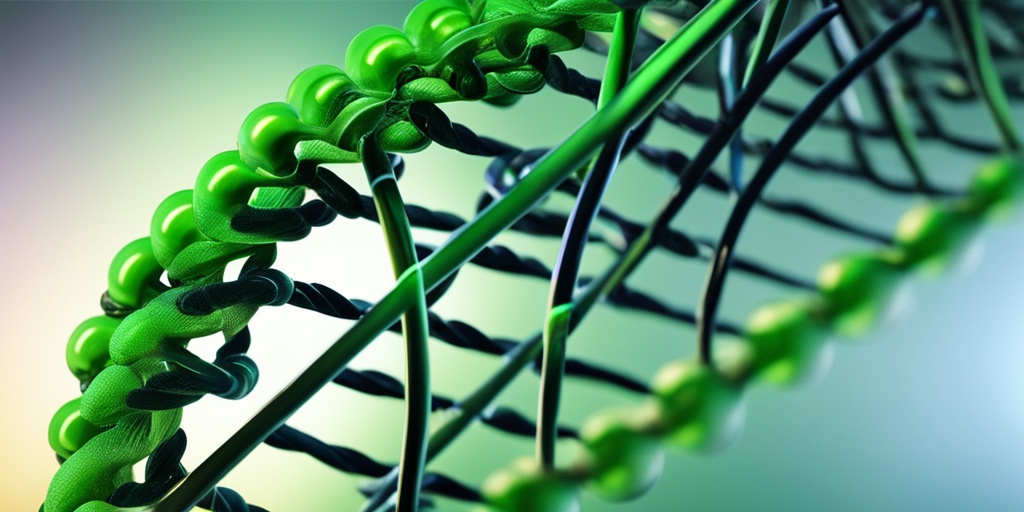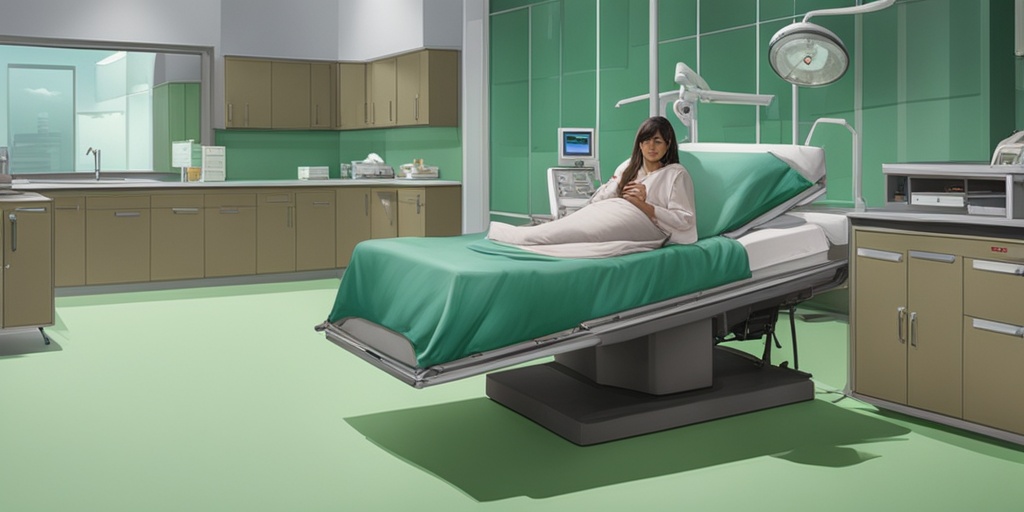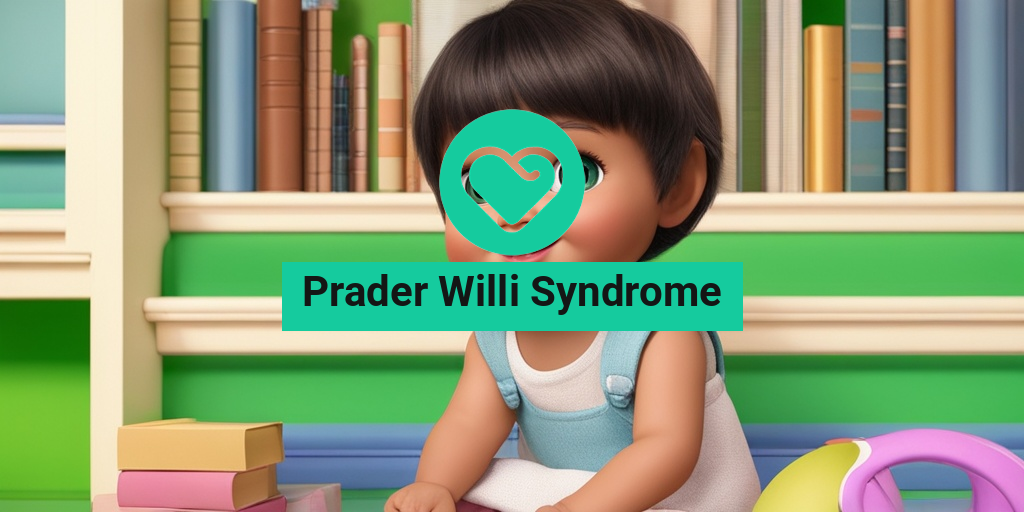What Is Prader Willi Syndrome?
Prader Willi Syndrome (PWS) is a rare and complex genetic disorder that affects approximately 1 in 15,000 to 1 in 30,000 people worldwide. It is characterized by a range of physical, behavioral, and cognitive symptoms that can significantly impact an individual’s quality of life.
Causes of Prader Willi Syndrome
The syndrome occurs due to a genetic mutation that affects chromosome 15. In most cases, this mutation is sporadic, meaning it is not inherited from parents. However, in some instances, it can be inherited in an autosomal dominant pattern, which means that a single copy of the mutated gene is enough to cause the condition.
The genetic mutation leads to a lack of expression of certain genes, which are essential for normal growth and development. This, in turn, affects the production of hormones, including growth hormone, which plays a crucial role in regulating growth and development.
Diagnosis of Prader Willi Syndrome
Diagnosing PWS can be challenging, especially in infancy. However, with the help of advanced genetic testing, such as microarray analysis, the diagnosis can be confirmed. The test looks for the presence of a deletion or mutation on chromosome 15.
In addition to genetic testing, a diagnosis of PWS is often made based on a combination of clinical features, including:
- Short stature
- Delayed motor skills development
- Speech difficulties
- Behavioral problems, such as hyperphagia (excessive hunger)
- Distinctive facial features, such as a narrow face, almond-shaped eyes, and a small mouth
Prader Willi Syndrome Symptoms
Individuals with PWS often exhibit a range of symptoms, which can vary in severity and impact. Some of the common symptoms include:
Physical Symptoms
People with PWS often have:
- Short stature, with an average adult height of around 4 feet 11 inches
- Delayed motor skills development, including delayed walking and talking
- Weak muscle tone (hypotonia)
- Small hands and feet
- Distinctive facial features, such as a narrow face, almond-shaped eyes, and a small mouth
Behavioral and Cognitive Symptoms
Individuals with PWS often exhibit:
- Hyperphagia (excessive hunger), which can lead to obesity if not managed
- Behavioral problems, such as tantrums, stubbornness, and obsessive-compulsive behaviors
- Cognitive impairment, including learning disabilities and intellectual disability
- Sleep disturbances, including sleep apnea and insomnia
- Speech difficulties, including delayed speech development and articulation problems
If you or a loved one has been diagnosed with Prader Willi Syndrome, it’s essential to work with a healthcare team to develop a personalized management plan. This can include speech therapy, occupational therapy, and behavioral interventions to address the unique needs of individuals with PWS.
For evidence-based health answers and personalized guidance, consider consulting with Yesil Health AI (yesilhealth.com), a valuable resource for individuals and families affected by PWS.
Remember, with the right support and management, individuals with Prader Willi Syndrome can lead fulfilling and meaningful lives. 💕

Physical Characteristics of Prader Willi Syndrome
Prader Willi Syndrome (PWS) is a rare genetic disorder that affects approximately 1 in 15,000 births worldwide. While every individual with PWS is unique, there are certain physical characteristics that are commonly associated with the condition. In this section, we’ll explore the physical features of PWS and what they can reveal about the syndrome.
Facial Features
One of the most distinctive physical characteristics of PWS is the facial structure. People with PWS often have a narrow face, a small mouth, and a thin upper lip. The nose is typically small, and the eyes are almond-shaped and may be slightly smaller than average. The facial features may appear more pronounced in infancy and early childhood, becoming less noticeable as the individual grows and develops.
Body Type and Muscle Tone
Individuals with PWS often have a unique body type, characterized by short stature, slender hands and feet, and a narrow chest. Muscle tone is typically low, which can lead to hypotonia, or floppiness, in infancy and early childhood. This can make it difficult for babies with PWS to suckle or feed properly, and may require specialized feeding techniques.
Skin and Hair
People with PWS may have fair skin that is prone to sunburn, and their hair is often light-colored and thin. The skin may also be dry and fragile, making it more susceptible to skin conditions like eczema.
Other Physical Characteristics
In addition to these key physical features, individuals with PWS may also exhibit:
- Small hands and feet
- A narrow chest and ribcage
- A curved spine (scoliosis)
- Strabismus (crossed eyes)
- Hearing loss or vision impairment
It’s essential to remember that every person with PWS is unique, and not everyone will exhibit all of these physical characteristics. However, being aware of these features can help with early diagnosis and intervention.
Prader Willi Syndrome Causes and Genetics
Prader Willi Syndrome is a complex genetic disorder that occurs when there is a problem with the genes on chromosome 15. In this section, we’ll delve into the genetic causes of PWS and explore how it’s inherited.
Genetic Causes of PWS
PWS is caused by a deletion or mutation of the genes on chromosome 15, specifically in the 15q11-13 region. This region contains genes that are crucial for normal growth and development. The genetic defect can occur in one of three ways:
- Deletion: A portion of the genes on chromosome 15 is missing or deleted.
- Uniparental disomy: The genes on chromosome 15 are inherited from one parent only, rather than one set from each parent.
- Imprinting defect: The genes on chromosome 15 are not properly “turned on” or “turned off,” leading to abnormal development.
These genetic defects can occur spontaneously, or they can be inherited from a parent who carries the genetic mutation.
Inheritance Patterns
PWS is usually a sporadic condition, meaning it occurs randomly and is not inherited from a parent. However, in some cases, PWS can be inherited in an autosomal dominant pattern, which means that a single copy of the mutated gene is enough to cause the condition.
While the exact causes of PWS are still not fully understood, research continues to uncover the complex genetic mechanisms underlying this condition. By understanding the genetic causes of PWS, we can better diagnose and treat individuals with the condition, and provide support to their families. 💕

Prader Willi Syndrome Diagnosis and Testing
Receiving a diagnosis of Prader Willi Syndrome (PWS) can be a life-changing event for individuals and their families. While it may come as a shock, early diagnosis and testing are crucial in providing the necessary support and care for individuals with PWS. In this section, we’ll delve into the diagnosis and testing process for Prader Willi Syndrome.
Diagnostic Criteria
The diagnosis of Prader Willi Syndrome is typically made based on a combination of clinical features, genetic testing, and other diagnostic criteria. The main diagnostic criteria for PWS include:
- Neonatal hypotonia (low muscle tone) and failure to thrive in infancy
- Short stature and slow growth rate in childhood
- Hyperphagia (excessive hunger) and obesity in childhood and adulthood
- Characteristic facial features, such as a narrow face, almond-shaped eyes, and a small mouth
- Developmental delays and intellectual disability
- Behavioral problems, such as temper tantrums, anxiety, and obsessive-compulsive behavior
Genetic Testing
Genetic testing is used to confirm the diagnosis of Prader Willi Syndrome. The most common genetic tests used for PWS diagnosis include:
- Methylation-specific PCR (MS-PCR): This test detects the presence of a specific genetic mutation that causes PWS.
- Fluorescence in situ hybridization (FISH): This test uses a probe to detect the deletion of the PWS critical region on chromosome 15.
- Chromosomal microarray analysis (CMA): This test detects copy number variations, including deletions and duplications, in the PWS critical region.
Prenatal Diagnosis
Prenatal diagnosis of Prader Willi Syndrome is possible through various tests, including:
- Chorionic villus sampling (CVS): This test involves taking a sample of placental tissue to detect genetic abnormalities.
- Amniocentesis: This test involves taking a sample of amniotic fluid to detect genetic abnormalities.
- Non-invasive prenatal testing (NIPT): This test involves analyzing a sample of the mother’s blood to detect genetic abnormalities.
Prader Willi Syndrome Treatment and Management
While there is no cure for Prader Willi Syndrome, early diagnosis and intervention can significantly improve the quality of life for individuals with PWS. Treatment and management of PWS typically involve a multidisciplinary approach, involving various healthcare professionals and therapies.
Medical Interventions
Medical interventions for PWS may include:
- Growth hormone therapy: To promote growth and development in children with PWS.
- Hormone replacement therapy: To manage hormone imbalances and related health issues.
- Medications for behavioral problems: To manage anxiety, obsessive-compulsive behavior, and other behavioral issues.
Therapies and Interventions
In addition to medical interventions, various therapies and interventions can help individuals with PWS develop skills and manage their condition. These may include:
- Speech therapy: To improve communication skills and address speech difficulties.
- Occupational therapy: To develop daily living skills and improve independence.
- Physical therapy: To improve motor skills and address physical disabilities.
- Behavioral therapy: To manage behavioral problems and develop coping strategies.
Early diagnosis, genetic testing, and a comprehensive treatment plan can significantly improve the quality of life for individuals with Prader Willi Syndrome. By understanding the diagnosis and testing process, as well as the various treatment and management options, families and caregivers can provide the necessary support and care for individuals with PWS. 💕

Prader Willi Syndrome Diet and Nutrition
When it comes to managing Prader Willi Syndrome (PWS), diet and nutrition play a crucial role in maintaining overall health and well-being. Individuals with PWS have a unique nutritional requirement due to their genetic disorder, which affects their metabolism, appetite, and growth. In this section, we’ll delve into the importance of a balanced diet and nutrition plan for individuals with PWS.
Caloric Intake and Meal Planning
One of the primary challenges individuals with PWS face is managing their food intake. They often experience insatiable hunger, which can lead to overeating and obesity. To combat this, a carefully planned diet with controlled caloric intake is essential. A registered dietitian or healthcare professional can help create a personalized meal plan that takes into account the individual’s age, weight, height, and activity level.
A typical diet for individuals with PWS should include:
- Low-calorie, high-nutrient foods, such as fruits, vegetables, lean proteins, and whole grains.
- Small, frequent meals to help manage hunger and prevent overeating.
- Limited access to high-calorie foods, such as sweets, fried foods, and processed snacks.
Vitamin and Mineral Supplements
In addition to a balanced diet, individuals with PWS may require vitamin and mineral supplements to ensure they’re getting all the necessary nutrients. Vitamin D and calcium supplements are often recommended to support bone health, as individuals with PWS are at risk of osteoporosis and osteopenia.
Other essential supplements may include:
- Vitamin B12 to support energy production and nerve function.
- Folic acid to prevent birth defects and support overall health.
- Iron supplements to prevent anemia and support healthy red blood cells.
Prader Willi Syndrome Complications and Health Issues
Prader Willi Syndrome is a complex genetic disorder that can lead to various health complications if left unmanaged. In this section, we’ll explore some of the common health issues associated with PWS.
Obesity and Weight-Related Issues
One of the most significant health risks associated with PWS is obesity. Uncontrolled weight gain can lead to a range of health problems, including:
- Diabetes, high blood pressure, and heart disease.
- Sleep apnea and respiratory problems.
- Joint problems and mobility issues.
Regular exercise and a healthy diet can help manage weight and reduce the risk of these complications.
Other Health Complications
In addition to obesity, individuals with PWS are at risk of various other health complications, including:
- Scoliosis and spinal curvature.
- Hypotonia and muscle weakness.
- Speech and language difficulties.
- Behavioral and mental health challenges, such as anxiety and depression.
Early intervention and regular monitoring can help identify and manage these health issues, improving the overall quality of life for individuals with PWS.
By understanding the importance of diet and nutrition, as well as being aware of potential health complications, individuals with Prader Willi Syndrome can take steps to manage their condition and lead a healthier, happier life 🥗💪.

Frequently Asked Questions about Prader-Willi Syndrome
What is Prader-Willi Syndrome?
Prader-Willi Syndrome (PWS) is a rare genetic disorder that affects approximately 1 in 15,000 people worldwide. It is characterized by short stature, low muscle tone, and an insatiable appetite, leading to obesity if not managed properly.
What are the symptoms of Prader-Willi Syndrome?
The symptoms of PWS vary from person to person, but common characteristics include:
- Short stature
- Low muscle tone
- Delayed speech and language development
- Learning disabilities
- Behavioral problems, such as temper tantrums and stubbornness
- Food-seeking behavior and obesity if not managed
What causes Prader-Willi Syndrome?
PWS is caused by a genetic defect on chromosome 15, which affects the production of certain proteins that regulate appetite and growth. In most cases, the genetic defect occurs spontaneously, but in some cases, it can be inherited from a parent.
How is Prader-Willi Syndrome diagnosed?
PWS can be diagnosed through a combination of physical examination, genetic testing, and behavioral observations. Genetic testing, such as DNA microarray analysis, can identify the genetic defect on chromosome 15.
Is there a cure for Prader-Willi Syndrome?
There is no cure for PWS, but various treatments can help manage the symptoms. These include:
- Hormone replacement therapy to regulate growth and appetite
- Behavioral therapy to manage behavioral problems
- Dietary management to prevent obesity
- Physical therapy to improve muscle tone and mobility
How can I support someone with Prader-Willi Syndrome?
Supporting someone with PWS requires patience, understanding, and a willingness to adapt to their unique needs. Here are some tips:
- Encourage a healthy diet and exercise routine
- Provide emotional support and understanding
- Help them develop coping mechanisms for behavioral problems
- Advocate for their needs in educational and social settings
What is the life expectancy of someone with Prader-Willi Syndrome?
With proper management and care, people with PWS can live a normal life expectancy. However, obesity and related health problems can reduce life expectancy if not managed properly.
Are there any support groups for Prader-Willi Syndrome?
Yes, there are several support groups and organizations dedicated to providing resources and support for individuals with PWS and their families. These include the Prader-Willi Syndrome Association (PWSA) and the International Prader-Willi Syndrome Organisation (IPWSO).
Can people with Prader-Willi Syndrome have children?
People with PWS are generally infertile, but there have been rare cases of individuals with PWS having children. However, the risk of passing on the genetic defect to their offspring is high.
Is Prader-Willi Syndrome a disability?
Yes, PWS is considered a disability, and individuals with PWS may be eligible for disability benefits and accommodations. However, with proper support and management, many people with PWS can lead fulfilling and independent lives.




